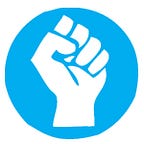Arturo Sandoval: Planting the Seeds of Change
After a lifetime of nurturing his own liberation, community activist and organizer Arturo Sandoval is helping New Mexican families grow their way out of oppression.
On an evening in 1896, under the cover of the northern New Mexico night, Leonardo Salazar prepared to cut down fences and reclaim land. He was a member of Las Gorras Blancas, a group of land grant defenders, who rode through New Mexico tearing down fences placed by white-Americans for their ranches and ever-expanding railroads.
As he donned his cap, his eight-year-old daughter, Margarita, watched. Leonardo told her she must not tell anyone what he was doing for fear he would be killed. But, Margarita did tell.
She repeated the story to her grandson, Arturo Sandoval, in 1972 as he prepared to go to trial for refusing induction into the Vietnam War.
“It was her way of telling me, ‘you’re a part of something bigger,’” Sandoval said.
This bigger plan became Sandoval’s lifelong journey of liberation and justice through community organizing and connecting with the land that raised him.
Sandoval, 69, continued to organize for social justice in New Mexico throughout his college years with the United Mexican American Students (UMAS). Sandoval describes UMAS as idealistic and, through direct action, transformative to the university.
“He was very dynamic and a spokesperson for Mexican Americans at that time,” said Dr. Felipe Gonzales, professor of sociology at UNM. Gonzales, Sandoval’s longtime friend, directs the School of Public Administration.
Gonzales met Sandoval in a sociology class in 1968. He describes Sandoval as a natural organizer who often used class discussion time as a catalyst for talk of social change and of ways to improve conditions for poor communities of color in New Mexico.
“[He] had a very strongly developed awareness of issues in relationship to the Chicano and Chicana people,” Gonzales said.
Sandoval’s awareness of oppression and colonization has informed his work to decolonize communities, including helping to organize the first Earth Day in 1970.
“The physical environment is as important as the spiritual and political environment,” he said, “I came to Earth Day because I saw how everything was connected.”
Sandoval sees racism, environmental injustice and colonization as interconnected threads. They are the gnarled roots entangling every facet of life in New Mexico; the politics and economics, food and water, the very air we breath.
Throughout his life, Sandoval’s work has addressed the damage from those interconnected issues. After years as a journalist, and continued organizing on behalf of New Mexico’s marginalized communities, he started the Center of Southwest Culture (CSC).
“I’m starting to really formalize my struggle, so it’s not just me out there. It’s an organization that’s actually evolving and that will be able to continue this work way past my time,” Sandoval said.
Originally published at https://generationjustice.org/2017/01/11/arturo-sandoval-planting-seeds-change/ on January 11, 2017.
